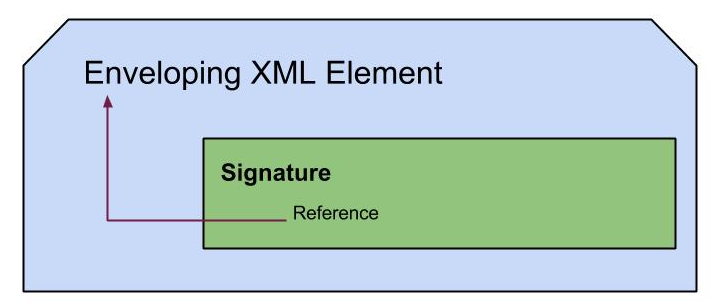XACML 3.0 Policies - Multiple Rules - 5
This is the 5th post of a series of posts after the post XACML 3.0 policies - Restricting conditions - OR http://pushpalankajaya.blogspot.com/2013/06/xacml-30-policies-restricting-condition.html. Here we will look at a more practical scenario, which uses a combination of rules to satisfy the requirement which is defined as follows.
- The operation getEmployees in the service http://localhost:8280/services/Customers should only be accessed by the users belong to the group(s) admin_emps or admin or both
- Request to any other service or operation should fail
- But the users admin1 and admin2 should be able to access any resource irrespective of their role
<Policy xmlns="urn:oasis:names:tc:xacml:3.0:core:schema:wd-17" PolicyId="testOr" RuleCombiningAlgId="urn:oasis:names:tc:xacml:1.0:rule-combining-algorithm:first-applicable" Version="1.0"> <Description>Test Or</Description> <Target></Target> <Rule Effect="Permit" RuleId="primary-group-emps-rule"> <Target> <AnyOf> <AllOf> <Match MatchId="urn:oasis:names:tc:xacml:1.0:function:string-regexp-match"> <AttributeValue DataType="http://www.w3.org/2001/XMLSchema#string">http://localhost:8280/services/Customers/getEmployees</AttributeValue> <AttributeDesignator AttributeId="urn:oasis:names:tc:xacml:1.0:resource:resource-id" Category="urn:oasis:names:tc:xacml:3.0:attribute-category:resource" DataType="http://www.w3.org/2001/XMLSchema#string" MustBePresent="true"></AttributeDesignator> </Match> <Match MatchId="urn:oasis:names:tc:xacml:1.0:function:string-equal"> <AttributeValue DataType="http://www.w3.org/2001/XMLSchema#string">read</AttributeValue> <AttributeDesignator AttributeId="urn:oasis:names:tc:xacml:1.0:action:action-id" Category="urn:oasis:names:tc:xacml:3.0:attribute-category:action" DataType="http://www.w3.org/2001/XMLSchema#string" MustBePresent="true"></AttributeDesignator> </Match> </AllOf> </AnyOf> </Target> <Condition> <Apply FunctionId="urn:oasis:names:tc:xacml:1.0:function:string-at-least-one-member-of"> <AttributeDesignator AttributeId="group" DataType="http://www.w3.org/2001/XMLSchema#string" Category="urn:oasis:names:tc:xacml:3.0:example-group" MustBePresent="true"></AttributeDesignator> <Apply FunctionId="urn:oasis:names:tc:xacml:1.0:function:string-bag"> <AttributeValue DataType="http://www.w3.org/2001/XMLSchema#string">admin_emps</AttributeValue> <AttributeValue DataType="http://www.w3.org/2001/XMLSchema#string">admin</AttributeValue> </Apply> </Apply> </Condition> </Rule> <Rule Effect="Permit" RuleId="primary-user-rule"> <Condition> <Apply FunctionId="urn:oasis:names:tc:xacml:1.0:function:string-at-least-one-member-of"> <AttributeDesignator AttributeId="urn:oasis:names:tc:xacml:1.0:subject:subject-id" Category="urn:oasis:names:tc:xacml:1.0:subject-category:access-subject" DataType="http://www.w3.org/2001/XMLSchema#string" MustBePresent="true"></AttributeDesignator> <Apply FunctionId="urn:oasis:names:tc:xacml:1.0:function:string-bag"> <AttributeValue DataType="http://www.w3.org/2001/XMLSchema#string">admin1</AttributeValue> <AttributeValue DataType="http://www.w3.org/2001/XMLSchema#string">admin2</AttributeValue> </Apply> </Apply> </Condition> </Rule> <Rule Effect="Deny" RuleId="deny-rule"></Rule> </Policy>
As we can see there are 3 rule elements to satisfy each of the requirements, where both the first rules looks same as the policy we came up at the previous post.Let's try out this with some requests.
- Admin user belonging to both the groups admin_emps and admin, tries to access the operation 'http://localhost:8280/services/Customers/getEmployees'. Response: Permit
<Request xmlns="urn:oasis:names:tc:xacml:3.0:core:schema:wd-17" CombinedDecision="false" ReturnPolicyIdList="false"> <Attributes Category="urn:oasis:names:tc:xacml:3.0:attribute-category:action"> <Attribute AttributeId="urn:oasis:names:tc:xacml:1.0:action:action-id" IncludeInResult="false"> <AttributeValue DataType="http://www.w3.org/2001/XMLSchema#string">read</AttributeValue> </Attribute> </Attributes> <Attributes Category="urn:oasis:names:tc:xacml:1.0:subject-category:access-subject"> <Attribute AttributeId="urn:oasis:names:tc:xacml:1.0:subject:subject-id" IncludeInResult="false"> <AttributeValue DataType="http://www.w3.org/2001/XMLSchema#string">admin</AttributeValue> </Attribute> </Attributes> <Attributes Category="urn:oasis:names:tc:xacml:3.0:example-group"> <Attribute AttributeId="group" IncludeInResult="false"> <AttributeValue DataType="http://www.w3.org/2001/XMLSchema#string">admin_emps</AttributeValue> <AttributeValue DataType="http://www.w3.org/2001/XMLSchema#string">admin</AttributeValue> </Attribute> </Attributes> <Attributes Category="urn:oasis:names:tc:xacml:3.0:attribute-category:resource"> <Attribute AttributeId="urn:oasis:names:tc:xacml:1.0:resource:resource-id" IncludeInResult="false"> <AttributeValue DataType="http://www.w3.org/2001/XMLSchema#string">http://localhost:8280/services/Customers/getEmployees</AttributeValue> </Attribute> </Attributes> </Request>
- 'admin1' user belonging to groups business and staff, tries to write to the resource 'http://localhost:8280/services/Secrets'. Response: Permit
<Request xmlns="urn:oasis:names:tc:xacml:3.0:core:schema:wd-17" CombinedDecision="false" ReturnPolicyIdList="false">
<Attributes Category="urn:oasis:names:tc:xacml:3.0:attribute-category:action">
<Attribute AttributeId="urn:oasis:names:tc:xacml:1.0:action:action-id" IncludeInResult="false">
<AttributeValue DataType="http://www.w3.org/2001/XMLSchema#string">write</AttributeValue>
</Attribute>
</Attributes>
<Attributes Category="urn:oasis:names:tc:xacml:1.0:subject-category:access-subject">
<Attribute AttributeId="urn:oasis:names:tc:xacml:1.0:subject:subject-id" IncludeInResult="false">
<AttributeValue DataType="http://www.w3.org/2001/XMLSchema#string">admin1</AttributeValue>
</Attribute>
</Attributes>
<Attributes Category="urn:oasis:names:tc:xacml:3.0:example-group">
<Attribute AttributeId="group" IncludeInResult="false">
<AttributeValue DataType="http://www.w3.org/2001/XMLSchema#string">business</AttributeValue>
<AttributeValue DataType="http://www.w3.org/2001/XMLSchema#string">staff</AttributeValue>
</Attribute>
</Attributes>
<Attributes Category="urn:oasis:names:tc:xacml:3.0:attribute-category:resource">
<Attribute AttributeId="urn:oasis:names:tc:xacml:1.0:resource:resource-id" IncludeInResult="false">
<AttributeValue DataType="http://www.w3.org/2001/XMLSchema#string">http://localhost:8280/services/Secrets</AttributeValue>
</Attribute>
</Attributes>
</Request>
Cheers!
References: Corresponding XACML 2.0 Policy - FacileLogin
Here is the next post of the series with a more practical requirement, XACML 3.0 policies - 6
Here is the next post of the series with a more practical requirement, XACML 3.0 policies - 6
